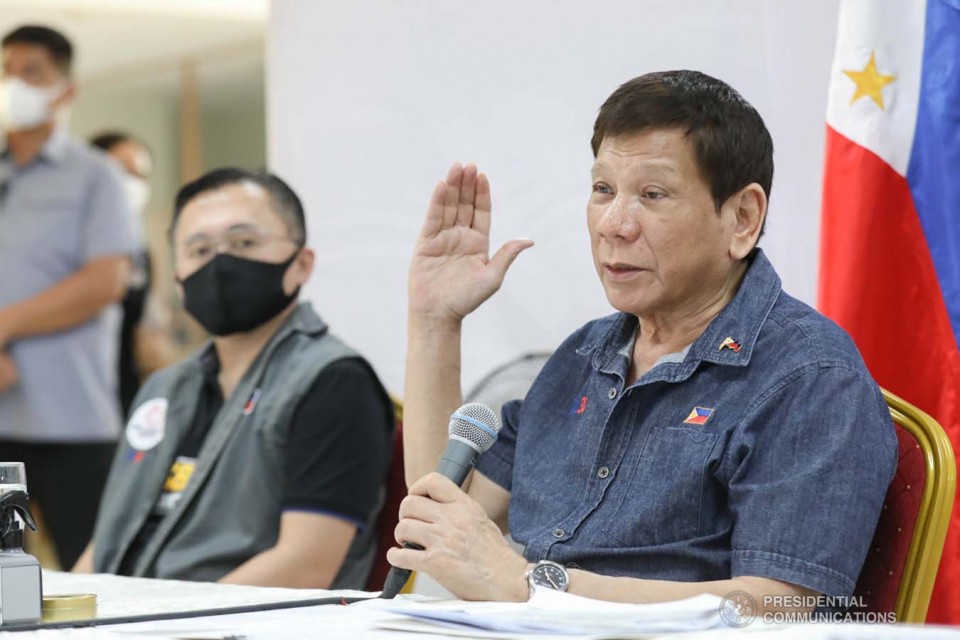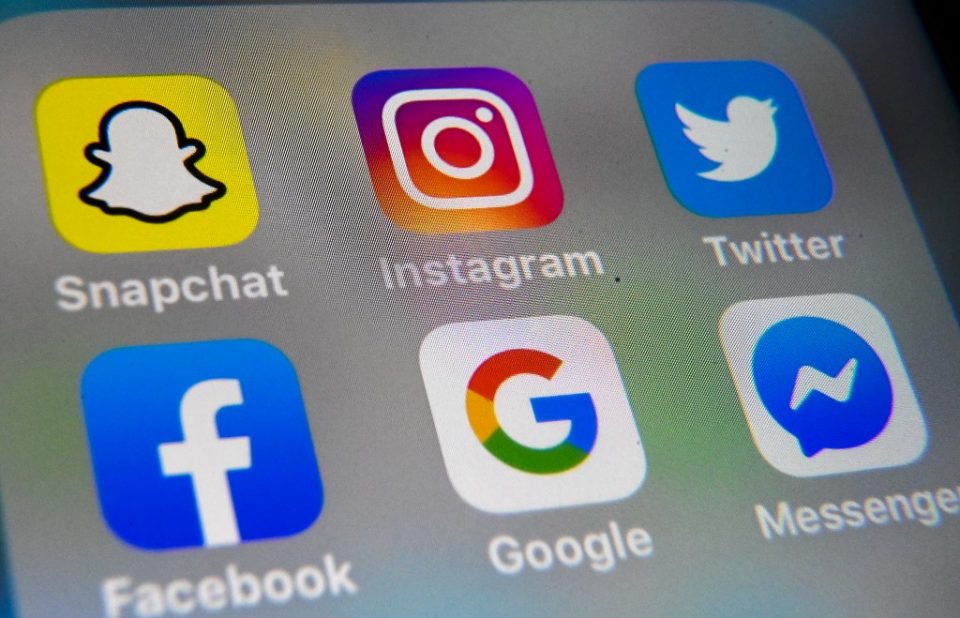Says only registration of SIM cards, not social media use, was part of original bill

(Eagle News) — President Rodrigo Duterte decided to veto a consolidated Senate and House bill that sought to mandate the registration of all SIM cards and social media accounts, after Congress added social media registration as part of the proposed bill without proper guidelines, the Palace said.
The 76-year old Duterte, who had been a prosecutor and long-time local mayor in Davao City prior to his election as Philippine president, said he felt that the inclusion of social media registration as part of the bill needed “a more thorough study” as it could be already considered a part of “state intrusion into “constitutionally protected rights” to free speech and privacy.
-Duterte cites possibility of “dangerous state intrusion”-
He said that this could be “dangerous.”
The consolidated Senate Bill No. 2395/House Bill No. 5793 sought to mandate the registration of all SIM cards and social media accounts with the purpose of deterring electronic communication-aided crimes.
But Malacanang said that President Duterte felt that the inclusion of social media registration as part of the bill without providing proper guidelines and definitions “may give rise to a situation of dangerous state intrusion and surveillance threatening many constitutionally protected rights.”
“The President noted that the inclusion of social media providers in the registration requirement was not part of the original version of the bill and needs a more thorough study,” a Palace statement read.
“Prior versions only mandated the registration of SIM cards. The President similarly found that certain aspects of state intrusion, or the regulation thereof, have not been duly defined, discussed, or threshed out in the enrolled bill, with regard to social media registration,” Malacanang said.
-Proper guidelines, definitions needed-
The Palace explained that while President Duterte lauded the efforts by Congress to find ways to address increasing incidence of cybercrimes and information and communications technology (ICT) related offenses, “he was constrained to disagree with the inclusion of social media in the measure, without providing proper guidelines and definitions thereto.”
“It is incumbent upon the Office of the President to ensure that any statute is consistent with the demands of the Constitution, such as those which guarantee individual privacy and free speech. This notwithstanding, we ask Congress not to lose heart in passing effective and strengthened measures that offer our citizens a safe and secure online environment, provided that the same would stand judicial scrutiny,” presidential spokesman Martin Andanar said in a statement.
Filipinos rank among the world’s heaviest users of social media, and the country has become a key battleground for misleading or fake news.
-Leftists welcome veto-
Renato Reyes, secretary-general of leftist alliance Bayan, welcomed the veto, saying SIM card and social media registration created a “chilling effect” for users and would “not deter crime”.
“A big part of the problem is government itself, as it benefits directly and indirectly from nefarious online activities,” Reyes said in a statement.
“We should start with demanding the government stop weaponizing social media and attacking people online.”

Duterte’s decision to block the bill comes as a torrent of misinformation floods Facebook, YouTube, TikTok and Twitter ahead of the May 9 national elections.
Former Senator Ferdinand “Bongbong” Marcos Jr., is leading the race for the presidency, while his running mate and first daughter Sara Duterte is the top contender for vice president.
Senate president and vice presidential candidate Vicente Sotto, who had supported the legislation, responded sarcastically to the veto.
“Great! Bombings and blackmail and scams will continue using prepaid sims,” Sotto tweeted.
Many mobile phone users in the Philippines use pre-paid SIM cards that they buy over the counter without giving their names and addresses to providers.
Militant groups fighting the government in the country’s south are known to favor the use of mobile phones to remotely detonate improvised explosive devices, leaving police with one less way to track the perpetrators.
The proposed measure can still become law if legislators can muster a two-thirds vote in each chamber to override the presidential veto, but that is unlikely to happen before the polls.
(with a report from Agence France-Presse)








